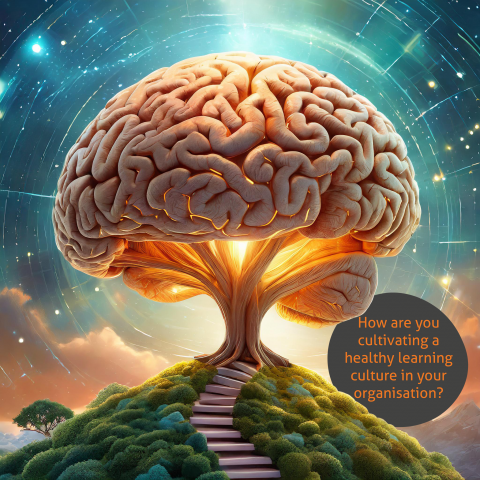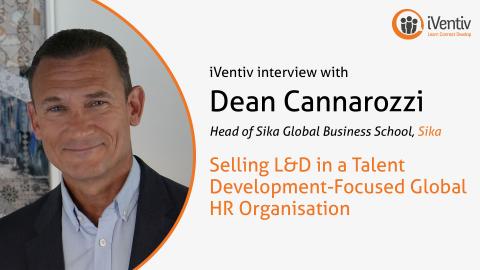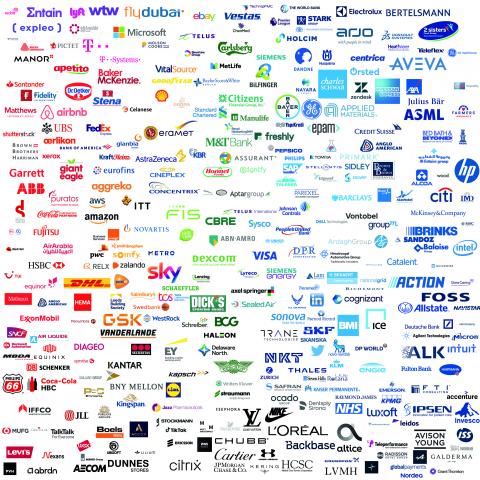Is supporting Ukrainian talent more than just about charity?
Since the Russian invasion of Ukraine, corporations have taken a range of steps to support Ukrainian employees and customers. Speaking to iVentiv ahead of her session at Talent Management Zurich in October 2022, Nataliia Gorbenko, Global Head of Talent, Performance and Rewards Management at Luxoft, spoke about how businesses have the opportunity to support Ukrainian talent with real benefits to both parties.
How are Luxoft supporting Ukrainian employees?
“It's about people,” Nataliia explains from the start. “We have 4,000 people in Ukraine and we had to address each and every case to make sure that people are safe and sound.”
Many Luxoft employees had to move abroad or to safer parts of Ukraine, and the company did a lot of work to help those people and ensure that they and their families were safe. That included opening seven new office spaces in Western Ukraine, plus a 24/7 hotline for relocation support and ongoing psychological support.
How big is the untapped Ukrainian Talent pool?
Up to seven million people have arrived in European countries and elsewhere from Ukraine. “All of a sudden”, Nataliia reflects, “we have a huge talent pool where we didn't expect to see them.”
Corporations have to provide humanitarian support, but it shouldn’t end there. “As corporations,” she says, “we can be really interested in looking at these people as talents who can join us and enrich teams.”
More than 50 percent of people arriving from Ukraine have bachelor’s degrees, more than half are English speakers, and Ukraine is a big producer of tech talent especially.
On top of that, as governments that previously put up barriers to hiring Ukrainian talent now rush to give them work permits and support, those people are now local and available for hire.
That means your organisation can approach them and, importantly, you would be hiring “the most motivated, the most willing people to succeed in their new beginning.”
What are the challenges for Ukrainian talent?
Nataliia speaks from personal experience. “I'm really lucky. My company helped me a lot by relocating me to a safer location where I can continue my global role.”
“Still,” she says, “it's not easy.”
Ukrainian talents are leaving their homes and dealing with a “new place, new language, new people, new legislation, new rules, new culture, and everything in one day.”
“At the very same time, this is our chance as people who are out of Ukraine now to help back to those who are still in Ukraine.”
How can HR and leadership teams support Ukrainian Talent?
HR and leadership teams have a real responsibility to give opportunities to Ukrainian talent in a way that benefits the individual and the business.
“We as representatives of top HR roles and leadership teams can talk to each other and we can help each other find the right way to help people here and now, because if you look around you will just simply see them there waiting for the offers, waiting for the openings.”
The investment for Luxoft has been almost cost neutral. Employees have been fully on board, supporting their colleagues and helping them to develop their language skills.
Ukrainian talents are adding diversity, they’re adding new skills, and they’re adding real expertise.
Younger talent is emerging from schools and universities as well and, Nataliia argues, you should be proactive in reaching out to them with internship opportunities.
“More than half a million school kids are now in European schools and colleges and universities. That's where you can approach Ukrainian students who really may need internships because their parents cannot help them.”
How are you supporting Ukrainian talent in your organisation? Have you thought about the new talent pools looking to you for opportunities?
Nataliia Gorbenko is currently Global Head of Talent, Performance and Rewards Management at Luxoft, a DXC Technology company which she joined more than 5 years ago. Luxoft with 18,000 employees globally empowers global enterprises to drive business outcomes and navigate change. Backed by deep technical and industry expertise, Luxoft builds digital products and smart platforms, delivers business-critical solutions, and enhances customer experience. In her role, Nataliia manages global HR centres of excellence as well as all local HR Operations focusing on employee experience excellence to engage, develop and retain key technology talents in all countries of Luxoft presence. She started her career in education, then moved to T&D area within a major multinational beauty company followed by a 10-year journey in Telecommunications. As a result Nataliia has 20+ years of diverse professional and industrial experience in various management and leadership roles with real passion for employee experience.










